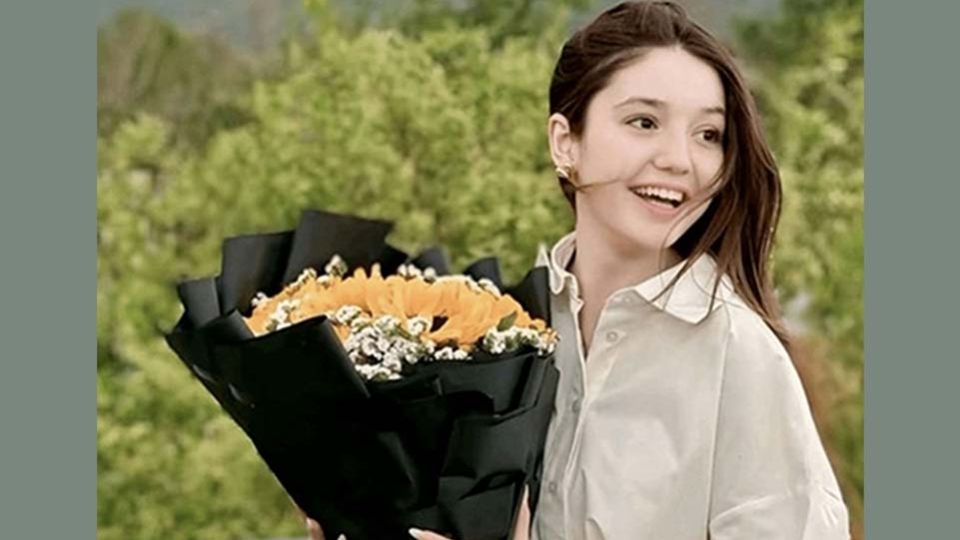June 5, 2025
ISLAMABAD – The brutal murder of 17-year-old Sana Yousaf inside her home in Islamabad elicited mixed reactions from netizens. Many were horrified that a young girl had been killed in her own home. Others, mainly men, celebrated her murder because she was popular on TikTok, an app widely considered to be ‘fahash’ or immoral.
What Sana shared on her TikTok account was irrelevant to these men; what mattered was that another ‘beacon of immorality’ was gone. Never mind that she had just celebrated her 17th birthday. Never mind that it eventually turned out that she was killed by a man who simply couldn’t take no for an answer.
In response to her murder, many celebrities called for justice for the young girl, expressing their horror over the violence perpetrated against her. At the same time, actor Ayeza Khan took to social media to caution people against posting as much online, nonsensically calling for people to “take responsibility for what we share”. But this isn’t a cautionary tale of the perils of social media — it’s yet another case of an entitled man who couldn’t take no for an answer.
Young girls should be able to post innocent videos of themselves and their friends without some actor chiming in online to tell everyone we must “take responsibility for what we share” after they are brutally murdered. The victim doesn’t need to take any responsibility here; the burden of responsibility lies squarely on the man who killed her because he couldn’t handle being rejected.
Sana was killed because she said no. She was killed in the supposed safety of her own home. Her death is tragic, but it is in no way her fault because she posted things online.
Mere weeks after a landmark judgment upholding the death sentence of Zahir Jaffer, the man who brutally murdered Noor Mukadam in Islamabad, the country mourns the cold-blooded murder of another young woman. It is because Sana was a TikTok star that most people even know of her story. There are thousands of other women killed who don’t have ‘Justice For’ hashtags or friends and families campaigning for their killers to be brought to justice. Their loved ones simply pack up their belongings, wipe their tears and must go on with their lives, resigned to the fact that their daughter or sister or friend is not the first or last woman in Pakistan to be killed by a man.
When men (and a fair share of women) scoff at the slogans at the Aurat March protesting this violence, when they slam the women who dare to go, when they brush it all off as elite women making a fuss over nothing, we think of Sana, of Noor, of Sarah Inam, of Zainab, of Qandeel Baloch, of all the women killed in Pakistan by men who believed being born a man allowed them to do what they liked, women’s lives be damned.
Pakistan doesn’t just have a law and order problem; it has a man problem, one we don’t seem to want to resolve. When men believe they are entitled to women and their attention, when they can’t take no for an answer, when they can’t begin to imagine that women have their own agency and right to decide what they want, they kill them. And we let it happen, again and again.
The calls for publicly hanging the culprit that inevitably arise after any incident of violence against a woman will amount to nothing, because hanging one man doesn’t solve a problem that many Pakistani men do not think is a problem at all. Many would do the same thing if they were rejected or insulted by a woman. Their ‘honour’ is at stake, after all.
Online, some men will cry and whine ‘not all men’, salivating at the chance to say they are not like these other animals who kill women senselessly. But these same men won’t go against their friends when they say misogynistic things against women, they’ll turn a blind eye when they hear of a friend slapping his wife, they’ll believe a man has the right to marital relations with his wife, whether she wants them or not, they’ll think no doesn’t mean no, it means maybe, they’ll believe women who post themselves online too much deserve what they get, and they’ll live their whole lives believing they’re better than these other men without realising they’re very much part of the problem.
Before you think you’re better than other men because you won’t cheer on a young woman’s murder, realise that that is the bare minimum. And unfortunately, most women in Pakistan can’t even expect the bare minimum from men.
And if you are offended by this article, why don’t you think about why. Is it because men aren’t murdering women? Is it because men don’t have a sense of entitlement over women, their bodies, their actions and their lives? Is it because a man killed a young girl and you think we don’t have a problem in the way men view women?
Sana Yousaf was 17 years old. She had her whole life ahead of her, one that should have been filled with joy, and all the ups and downs of life, but instead, her family now faces burying a young girl, taken from this world by a man whose ego outweighed any sense of humanity within him.


